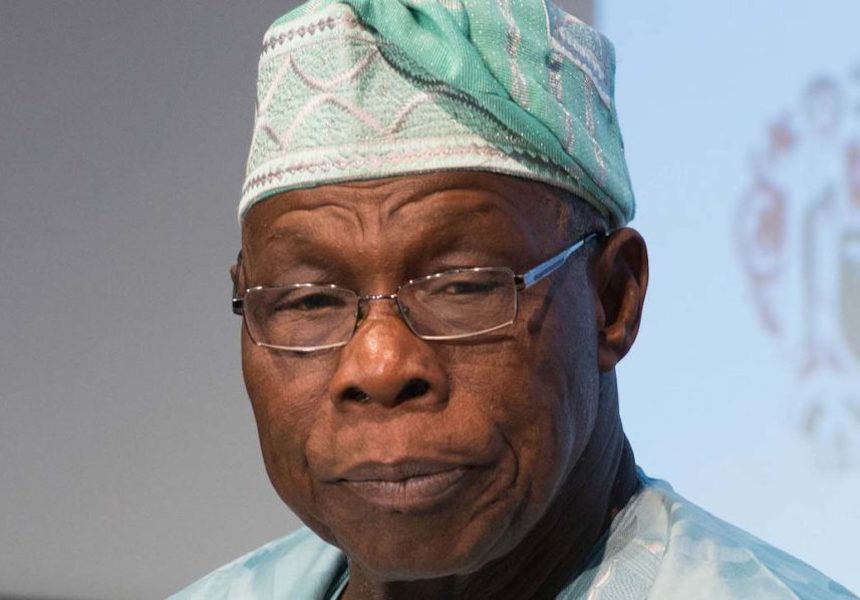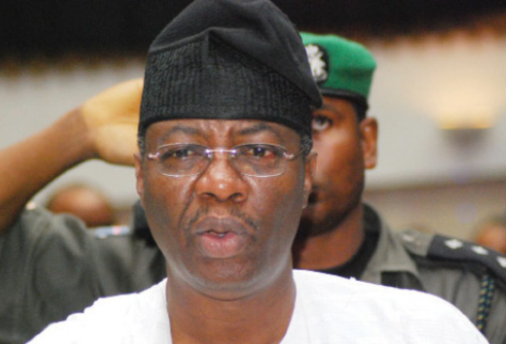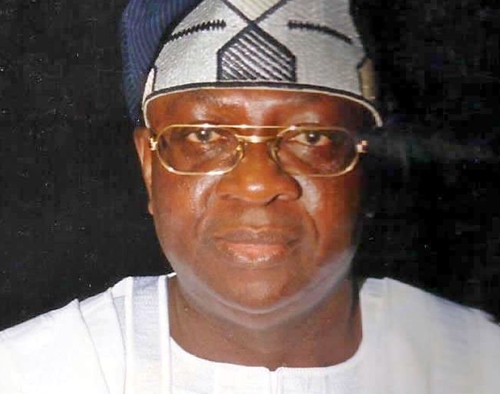The government of President Bola Ahmed Tinubu allegedly concludes plan to sack Private Terminal Operators handling port terminals under the shambolic ports concession arrangement of 2006, over political considerations and poor ports infrastructure development
By Our Correspondent
In their present state, the Nigerian seaports’ terminals across the country are an eyesore. They’re alleged to be dirty, smelly and devoid of competitive ports’ infrastructure to deliver efficient business operations. The ports are alleged to be the worst of their kinds globally even after they were privatised nearly two decades ago.
In 2005, the civilian administration under former President Olusegun Obasanjo, began a journey to nowhere through the nation’s seaports. The ports’ terminals were allegedly balkanized amongst the top echelon of the People’s Democratic Party (PDP) at the time, including Obasanjo himself who superintended the government as the president. The deal was christened, “Port Concessioning”.
The ports concessioning arrangement was concluded in 2006 when the seaports’ terminals were shared and ceded to the front companies of the PDP bigwigs to run, manage and collect terminal fees and charges on behalf of their principals who called the shots at the political power corridors in Abuja. Then, the PDP protagonists had boasted that the party would rule Nigeria for 60 years uninterrupted.
Rhetorics flowed. It was cheap for hired experts to sway audiences at different fora to believe that concessioning was the best that could happen to the seaports if the country wanted ports infrastructure development and efficient running of the ports. The experts insisted that government had no business running the seaports, but individuals and corporate bodies as was the case in other prosperous economies.
Some other favourable arguments relating to port concessioning was that it would create more jobs, it would shorten the lengthy time spent on cargo clearing processes and, it would attract foreign direct investments that would improve ports infrastructure to make the Nigerian ports comparable to those of the United States, Europe and Asia. Furthermore, concessioning, it was touted would minimize corruption in the shipping business sector, bring about security and less smuggling activities.
Perceiving the duplicity deployed by the ruling PDP to force the bitter pill of concessioning the seaports down the throat of hapless citizens, the incoherent opposition parties had kicked against the policy albeit feebly, but the empty promises of the Obasanjo government’s spin doctors would swallow the weak opposition voices. Yet questions were asked, but details of the policy were intentionally shrouded in secrecy. Hence, ports’ concessioning berthed.
Then President Obasanjo and his cronies would allegedly carve out the biggest pie-the AP Moller Apapa Terminal (APMT) and the Ports and Terminals Multi-purpose Limited (PTML)-and awarded themselves a 25 lengthy years concession of near-free operations of the two terminals. Interestingly, no known specific concessioning fees were paid by the Private Terminal Operators (PTOs) to the Federal Government, no known monthly or yearly remittances to the Federal Government was agreed upon, no statutory apparatus was put in place to checkmate the excesses of the PTOs, rather they became their own regulators and operated without checks and balances which abused the system.

Despite the job losses which the PTOs failed to replenish effectively, their terminals had allegedly been turned into a haven for the perpetration of all manners of illegal and illicit acts without anybody bating an eyelid. Through these concessioned seaport terminals, it was alleged, arms and ammunition, hard drugs of all nature, and various other outlawed imports have been flooding the country indiscriminately. There have been alleged indiscriminate smuggling activities that have defied, beat and defeated customs anti-smuggling tactics, going on in the terminals. There have been interceptions of billions of Naira worth of tramadol, skunk, American loud, cocaine and arms and ammunition in these terminals in the recent times by operatives of the National Drug Law Enforcement Agency (NDLEA) and those of the Nigeria Customs Service (NCS).
Almost 20 years after, the ill-fated ports’ concessioning undertaken by the Nigerian Ports Authority (NPA) under the leadership of Adebayo Sarumi as the Managing Director at the time, has no visible development in infrastructure, instead the PTOs continue to operate with the near-ilapidated structures they met on ground without adding more value except the collection of exorbitant charges and levies that have thrown up unrest among the business community in the seaports. Instructively, the seaports’ terminals were not properly bided and won by the current PTOs, they were merely allocated to them based on the discretion of the PDP top shots. These PTOs include the APMT, ENL Consortium Limited, Apapa Bulk Terminal Limited (ABTL), Greenview Development Nigeria Limited (GDNL) and the Lilypond Inland Container Terminal. These inherited the Apapa Seaport Terminals.
The Tincan Island Port Terminals were, in like manner, divided amongst PTML, Josephdam Port Services Limited, Tincan Island Port Container Terminal Limited, Port and Cargo Handling Services Limited run by the Sifax Group, and Five Star Logistics Limited.
Other PTOs are Intels Nigeria Limited, Ocean and Cargo Terminal Services Limited, Julius Berger Nigeria Limited and the Associated Maritime Services Limited which had the Delta Port Complex terminals, Delta State ceded to them.
There were Intels again, West African Container Terminal Services (WACT) and the International Container Terminals Services Nigeria Limited (ICTNL) which had the Onne Port Complex, Rivers State partitioned among them.
The Rivers Port Complex, Port Harcourt, Rivers State, was divided and concessioned to Ports and Terminal Operators Limited (PTOL) and BUA Port and Terminal Limited, while the Calabar Port Complex was divided and given to Intels Nigeria Limited, ECM Terminals Limited and Shoreline Logistics Terminal Limited.
All of these terminals had entered the shoddy port concessioning contract with the Federal Government for 10 years beginning from 2006 except APMT and PTML which had their suspicious contracts to run for 25 years beginning from the same 2006.
Based on the controversial contract, the first duration of 10 years expired in 2016 and was allegedly renewed for another five years in a reluctant move by the civilian administration of former President Muhammadu Buhari, which had expired since 2021. Since then, these concessionaires have allegedly occupied the terminals illegally, collecting terminal charges and levies without rendering account to the Federal Government.
This medium gathered reliably that the Tinubu government has assessed the seaports concession policy and found out that it was done in bad faith by the PDP government under Obasanjo, and has allegedly perfected plans to terminate the contracts, excluding those of APMT and PTML. A dependable presidency source revealed that the Tinubu government has been jolted by the decay in the nation’s port infrastructure which elicited its investigation into how these concessionaires have been running the seaports’ terminals in the almost two decades of their operations.
A presidency source when contacted confirmed the move by the Federal Government to reallocate the terminals to other investors on better contractual terms that will bring commensurate returns to the Nigerian people. The source hinted that the basis for the imminent sack of the concessionaires includes failure of the current PTOs to develop the ports’ infrastructure where they are making millions of dollars without regulation, equitable pricing for the terminals that will reflect the current reality of the economy, as well as ensuring that what is due to the country will get to it during the next bidding process. He contended that the present inflationary trend has only benefitted the PTOs while it reduced drastically what is due to Nigeria.
Meanwhile, it was gathered reliably that Sifax Group, Operators of the Port and Cargo Handling Services Limited, a terminal located in the Tincan Island Port, Apapa, Lagos has allegedly vacated the port terminal and relinquished it to the Federal Government over its inability to upgrade the terminal’s facilities to modern standard, as well as the alleged use of the terminal for smuggling in hard drugs in the recent times. A source disclosed that Port and Cargo Handling Services terminal is now in the custody of the Federal Government.
Another valuable source linked to Aso Rock, insisted that Port and Cargo Handling Services Limited belonged to Otunba Gbenga Daniel, a former governor of Ogun State and other former governors of PDP who chose now late John Shagaya to be the Chairman of the terminal. Shagaya was a former Minister of Internal Affairs under the Sani Abacha military junta, and later became a strong member of the PDP Board of Trustees. Daniel, Shagaya and others allegedly used Sifax Group as a front company to acquire the terminal from the Obasanjo government.

Efforts to reach the Nigerian Ports Authority (NPA), the government agency in charge of the port terminals proved abortive. Tentacle also made effort to contact Sifax Group whereupon its Group Head, Corporate Communications, Olumuyiwa Akande responded and provided insight into the contentious issues.
In the first place, Akande denied Port and Cargo Terminal being taken over by the government, insisting that, “The allegation that another management has taken over, go there and see things by yourself, is not true. Our staff is still working there. The same management is still there. So, we are still waiting for when government will soon sign our contract for another 10, 15 or 20 years.
The Sifax Group also denied the allegation that its concession has expired since 2021. Rather, the company said it has been paying One Million Dollars to the Federal Government on monthly basis as concession fee and another unspecified amount as throughput levy to governments also on monthly basis. The two fees amount to over Two Million Dollars which the Sifax Group pays to the Federal Government every month.




